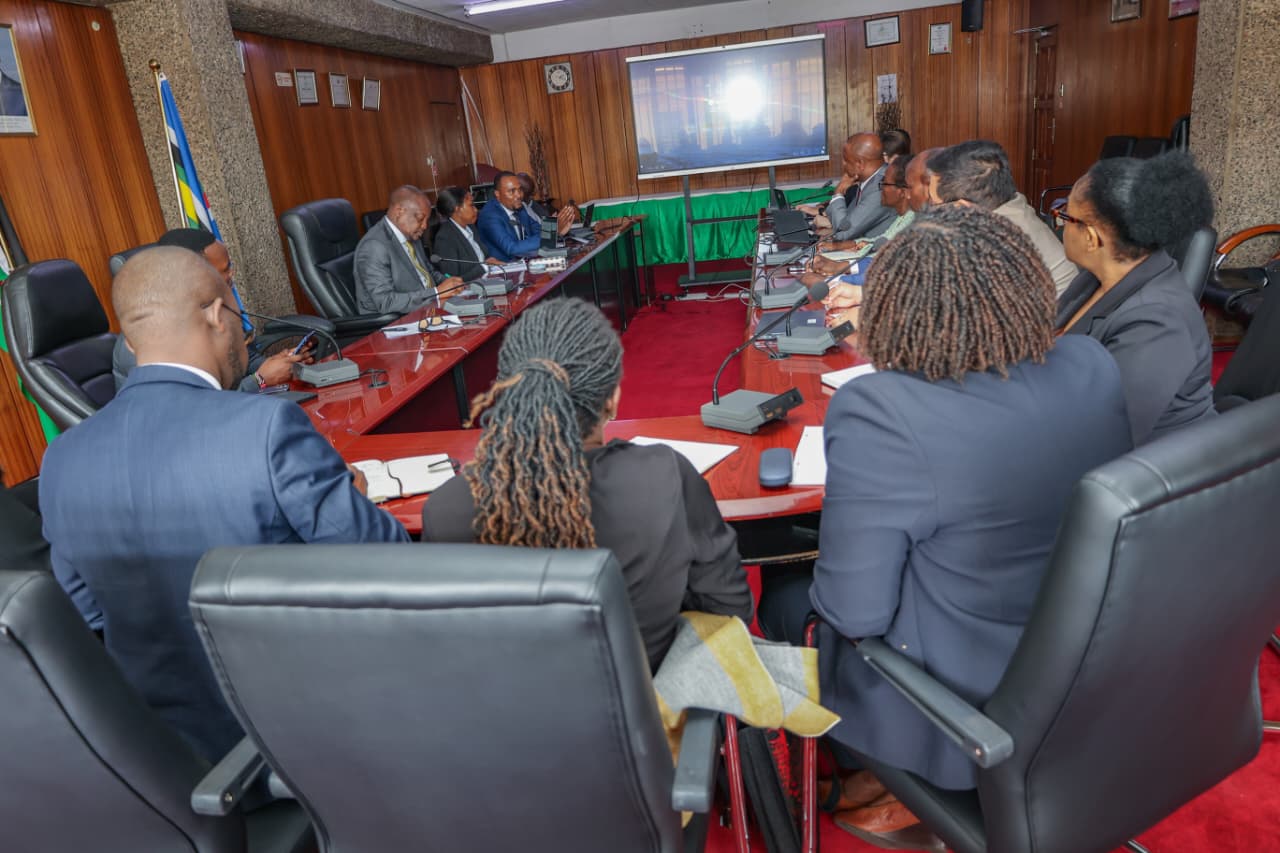
Agriculture Cabinet Secretary Mutahi Kagwe has announced that Kenya is set to launch the JobsConnect Compact, becoming the first country in Africa to finalise the global framework aimed at creating six million new, greener, and dignified jobs by 2030.
The announcement was made at Kilimo House during a briefing attended by World Bank Regional Office officials Eliot Mghenyi, Ghada Elabed, and James Musinga, alongside founding members of the MADE Alliance, including representatives from Mastercard, Equity Group, Microsoft, and the Kenya National Federation of Farmers (Kenaff).
Other participants included Florence Kariuki, Daniel Huba, Jane Gidali (Mastercard), Magdalene Alukhava (KENAFF), and Priya Chana, Nawa Lubasi, and Harold Mate (Equity).
Kagwe confirmed that all agricultural digitisation efforts are now consolidated under the Kenya Agriculture Data and Information Centre (KADIC), which will host the full agricultural data ecosystem, including KIAMIS.
The Agriculture Information and Resource Centre (AIRC) will be integrated into KADIC to eliminate data duplication and strengthen real-time linkages between farmers, counties, cooperatives, markets, and processors.
KADIC Director Betty said the Centre will lead the rollout of the Digital Agriculture Roadmap (DAR), scheduled for launch next year. KADIC’s Director of Digital, Juma Salim, added that unifying data from the Ministry’s 31 parastatals will help farmers access timely, actionable information to improve productivity and incomes.
The JobsConnect Compact focuses on four key objectives: job creation, food and nutrition security, import substitution, and export growth.
It aims to generate 5.3 million new and better jobs, reduce the number of food-insecure populations by 10 million, save USD 2–3 billion from reduced imports, and increase agricultural export earnings by USD 5 billion.
Kagwe highlighted that digital agriculture is central to transforming farmer incomes and attracting youth into a modern, technology-driven sector. He also noted a major human resource transition in the ministry, with a significant portion of the workforce expected to exit over the next two years, describing it as an opportunity to rebuild capacity through Agri-Connect, agri-preneur training, Kenya Agriculture College, and digitised soil testing initiatives.
Mastercard presented its digital payment infrastructure, noting that a small proportion of farmer transactions currently pass through M-Pesa, which limits financial visibility.
Equity Bank reiterated its commitment to supporting agriculture through initiatives aimed at raising yields, savings, and long-term farmer wealth.
Kagwe emphasised that high commercial interest rates, currently around 18–19%, challenge the sector, advocating instead for a 5% guaranteed agricultural credit facility as a sustainable alternative.
He cited government investments, including a Sh61 billion fertiliser subsidy and a Sh17 billion credit facility, as part of efforts to stabilise production, lower input costs, and ensure Kenya’s agriculture sector remains competitive and inclusive.















